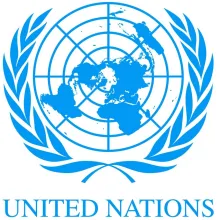
Report of the Special Rapporteur on the situation of human rights and fundamental freedoms of indigenous people,
James Anaya
Addendum
The situation of indigenous peoples in Botswana
Download PDF English | Spanish | Arabic | French | Chinese
Distr.: General
2 June 2010
Original: English
Human Rights Council
Fifteenth session
Agenda item 3
Promotion and protection of all human rights, civil,
political, economic, social and cultural rights,
including the right to development
Summary In the present report, the Special Rapporteur on the situation of human rights and fundamental freedoms of indigenous people, James Anaya, presents his observations and recommendations on the situation of indigenous peoples in Botswana, focusing on those groups that have been historically marginalized and that remain non-dominant parts of society. The report arises out of an exchange of information with the Government, indigenous peoples and other interested parties and follows the Special Rapporteur’s visit to Botswana (19–27 March 2009).
The Special Rapporteur acknowledges the initiatives undertaken by the Government of Botswana to address the conditions of disadvantaged indigenous peoples. He highlights, in particular, efforts aimed at addressing long-standing problems such as marginalization in political spheres and a history of underdevelopment. Nonetheless, the Special Rapporteur notes that, while important, these initiatives still suffer from a variety of shortcomings and need to be designed and implemented in a manner that recognizes and respects cultural diversity and distinct indigenous or tribal identities.
The Special Rapporteur notes that the Government of Botswana has developed a number of programmes aimed at preserving and celebrating the unique cultural attributes of the country’s many indigenous tribes. However, Government programmes should not be limited to the recognition of ceremonial and artistic expression, but rather should be expanded to include a real respect for and promotion of cultural diversity as it is manifested in its many forms, including in political and social structures, land-use patterns and approaches to development. Too often, the practices of the dominant Tswana tribes have been incorporated in the design and implementation of Government initiatives to the exclusion of the practices of culturally distinct minority tribes.
Marginalized indigenous peoples of Botswana continue to confront serious issues arising out of the historical loss of vast amounts of land and natural resources. A significant amount of tribal land, particularly of non-dominant peoples, such as the Basarwa, was lost during colonization, and this pattern of land loss and denial of access to natural resources continued post-independence. The Special Rapporteur finds that the failure to provide adequate redress for these historical grievances has profoundly affected Botswana’s indigenous peoples in the present, and land loss remains a significant contributing factor to many of the issues of these peoples. The depth of these issues is exemplified by the removal of indigenous peoples from the Central Kalahari Game Reserve.
The Special Rapporteur offers a number of observations and recommendations with the hope that they will help guide the Government of Botswana, indigenous peoples within the country and other interested parties to develop and implement laws, policies and programmes that conform to the international human rights standards related to indigenous peoples.

